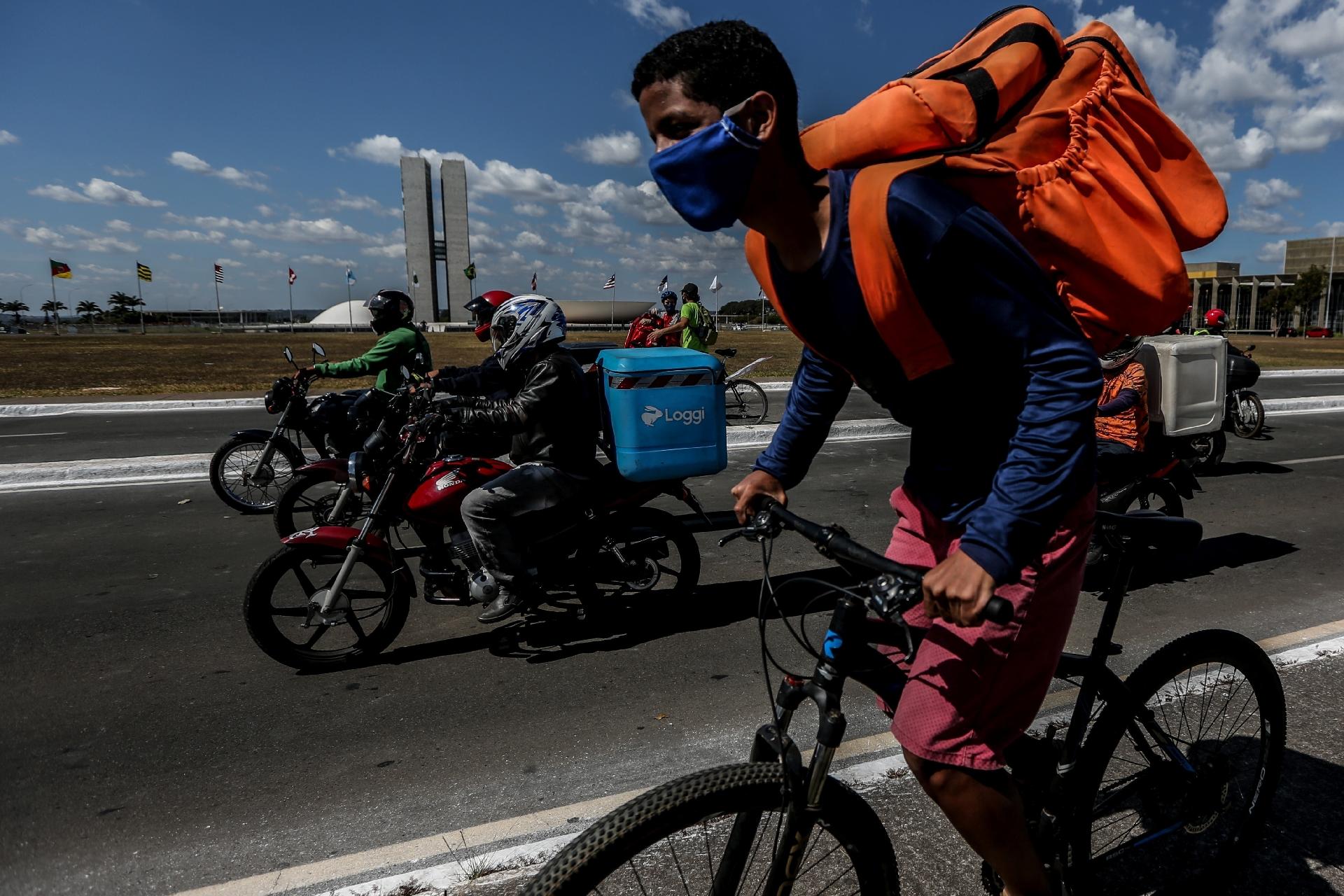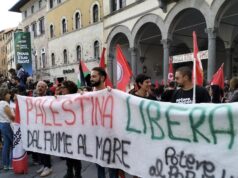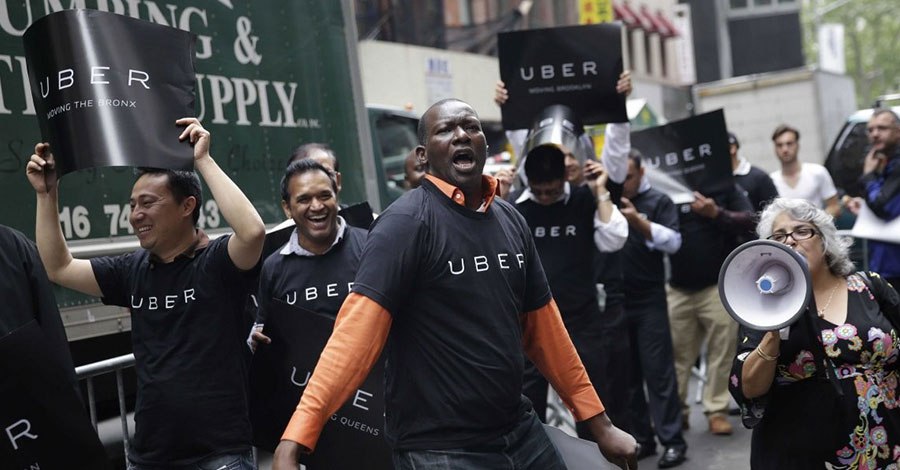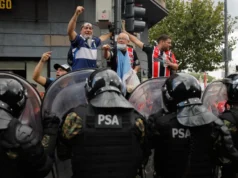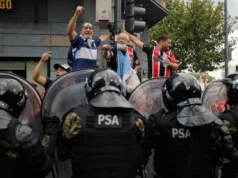By an app user
We warn the readers that breque [stoppage] and the verb brecar [to hit the brakes] was the choice made by the app delivery workers themselves to designate their work stoppages. This word refers to the act of hitting the brakes on a motorcycle, which in Brazil is called breque.
Application delivery workers of Rio de Janeiro, especially from iFood, plan to go on strike this Sunday [July 18th]. This time the rally will be on Avenida das Américas, in Via Parque hub, and the main demand is to end of the sub-regions policy that has been imposed by iFood in Rio de Janeiro since July 1st.
The sub-region is followed by a working regime
The sub-regions are geographical locations defined by Logistics Operators – LO (OL). The delivery workers who are controlled by the LO are scaled to work in that location. They call “regions” wider geographical contours: some neighborhoods, for example, are already set up as regions. These logistics operators are coordinated by third-party service companies linked to iFood.
Applications such as iFood promise “autonomy for the delivery workers”, but when they impose the sub-region regime they end up establishing a regime that is very similar to a hired/formal worker. However, the workers still do not have any defined labor rights, because they still are “independent/self-employed workers”. In Rio de Janeiro, this trend has been imposed by the framing of these workers in the so-called “logistics operator” (LO) regime. Currently, there are two link modalities with the iFood App: Cloud (Nuvem), which allows greater flexibility and is closer to the “autonomy” promise by the company, and the “Logistics Operator” (LO). Lately, what has been happening in Rio de Janeiro is a pressure for the delivery workers to be part of the LO regime.
The main instrument used to force workers to comply is an old problem, already reported by the workers in the 2020 Breque, the undue blockages: customers who cancel orders after receiving them, “bugs” that indicate that the delivery worker has not delivered the order, and any work setbacks that are seen as the workers’ fault. In addition, there are the cases of blockage due to the participation of the delivery workers in a stoppage, breque or motociata [a motorcade only with motorcycles].
At the time of matching the order, most often the workers come out as wrong, and to make matters worse the support is precarious for “cloud” delivery workers. They often end up talking only with robots. Weekly, many delivery workers have to face at least one such situation, and the fear of running out of their source of income is always present.
There are reports of LO leaders taking advantage of the deteriorating working conditions of cloud deliverers, promising to unlock their accounts in up to 48 hours if they choose to join the LO regime. In addition, those who still work as a cloud reported that since the start of the sub-region regime they no longer receive orders as before, while the job opportunity and income given to LO delivery workers is disproportionately greater.
The apparent “security” of LO is refuted by the most diverse reports, among them there is the following one, from a worker who participated in the breque in Madureira and whose identity will not be revealed:
We heard from a friend who is the breadwinner in his family that, after months with his account blocked, he joined the LO regime, and now he and other colleagues are working and cannot leave [from LO]. In the sub-region, they are feeling threatened because they ask to end it because they have to spend a lot of fuel, they deliver orders that do not pay one real per km. The answer that they get is that if they leave for the cloud regime, they will be marked for analysis. They want to be able to support the movement, but they are afraid of reprisals.
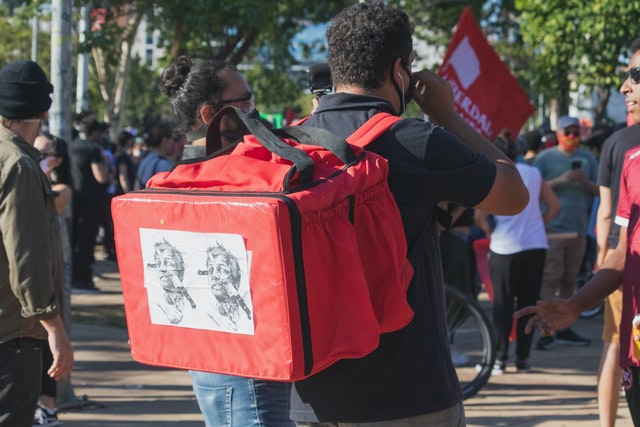 In addition, in the sub-region regime, it is delimited that you will be in charge of making deliveries from a region. When the delivery is completed, you do not pick up another from where you left off, you go back to the sub-region. Many complain that this dynamic increases the fuel needed to make the deliveries.
In addition, in the sub-region regime, it is delimited that you will be in charge of making deliveries from a region. When the delivery is completed, you do not pick up another from where you left off, you go back to the sub-region. Many complain that this dynamic increases the fuel needed to make the deliveries.
In addition to the sub-regions, iFood has been testing in places such as Goiânia, Belém, and Ribeirão Preto the regime of schedule or “delivery appointment”. It is not directly linked to a specific work regime, as the sub-regions with the logistics operators, but mimics the idea of timing and segregating cloud workers based on their performance assessed by the bosses. Faced with this and other challenges, delivery workers have been mobilizing, as in the last mobilization that took place on July 4th. They gathered in their rally points and did not wait for any union approval to start.
The mobilization that began on Sunday (July 4th) opens an opportunity for delivery workers of several apps and modalities to initiate an offensive against the companies and stimulate fraternal ties among themselves. Their bags are different, but they work under the same weather, serve the same customers and suffer daily from the same problems.
At this moment, a broad network of solidarity is needed. In addition to donating masks, foods and structure for the demonstrations, we need to maximize the effort in reporting these struggles.
Translated by Marco Túlio Vieira from original article published in 07/15/2021


